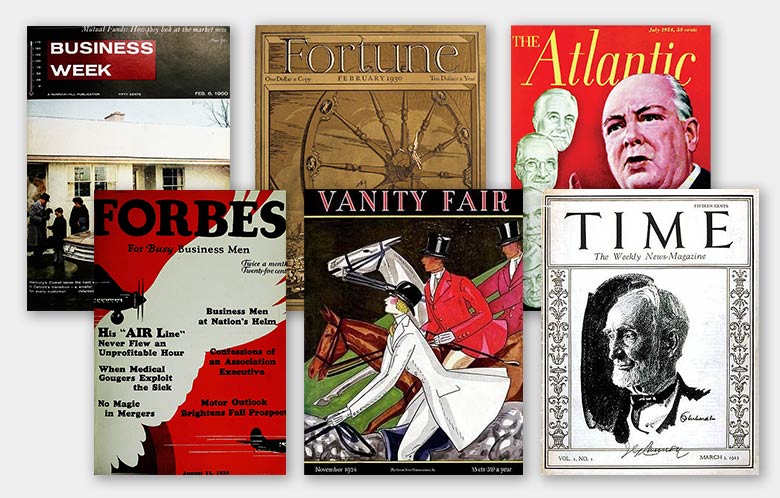EBSCO and Library Journal recently conducted a focus group with academic librarians in the U.S. to discuss the value of magazine archives in college libraries. The focus group findings provide evidence that magazine archives play a valuable role in enhancing academic research. Here are some of the ways magazine archives can be beneficial.
1. Deliver Primary Sources
Magazine archives can be used and cited as primary sources, which many academic assignments require. Historical magazines capture the cultural, social, and political elements of a particular time period, offering firsthand accounts and contemporaneous perspectives that secondary sources don’t deliver.
One focus group member relayed the sentiments of an anthropology professor who directed her students to magazine archives for primary sources. “Having access to these publications will absolutely be a resource that Anthropology students can draw from as primary source material. Having them digitally will allow for the kind of textual analyses that anthropology students are interested in.”
2. Supplement Research in Multiple Disciplines
Magazine archives cover a wide range of topics, from science and technology to the arts, business, culture, politics and more. This makes them an ideal resource to complement multidisciplinary research. Researchers and students of sociology, history, literature and media studies can find relevant articles, advertisements, photographs and illustrations that provide insights into a specific area of interest.
One participant shared the ways that magazine archives were helpful when focusing on DEI topics. “We have been focusing on diversity, equity, and inclusion here a lot, so we purchased a couple of magazine archive titles focused on underrepresented groups.”
3. Contain Rich Visual Content
In contrast to the peer-reviewed academic journals that rely heavily on text, magazine archives include photographs, cover art, illustrations and advertisements that are equally valuable. This is particularly helpful to students of art history, visual arts, media studies and theater arts. Visual content provides insights into societal norms, fashion trends, cultural milestones, technological advancements and marketing strategies.
Another participant commented, “We have an Apparel Merchandising and Management major, so those students look at the fashion magazine archives a lot. And our college of Environmental Design, Architecture and Landscape Architecture relies on other magazine archives with that focus.”
4. Offer Chronological Perspectives
Magazine archives offer a chronological perspective that is crucial for understanding the progression of ideas, events, and cultural trends over time.
One focus group member brought up an example of how faculty turns to magazine archives for historical timelines. “One of our geography professors uses magazine archives for looking at domestic social issues and geopolitical events and how they were talked about in the past.”
By examining issues of a magazine published over several years, researchers can track changes in public opinion, shifts in societal values, and the evolution of ideas and images. Researchers can construct detailed timelines, identify turning points, and understand the factors that influenced the course of history.
5. Provide Unique Content
Magazine archives contain rare and unique content that may not be available elsewhere, such as early works by notable authors, exclusive interviews, original cover illustrations, and articles that capture the essence of a particular era.
As one focus group member noted, “Magazines archives are very well placed to give insight into the culture and politics of a particular time for a wide range of publics.”
These are just five of the many ways that magazine archives are beneficial to academic research. They serve as time capsules of historical content offering students and researchers a wealth of unique information. Whether a researcher is studying the evolution of fashion, the impact of political movements, the changing role of advertising or the development of scientific theories, magazine archives offer a unique window into the past.



